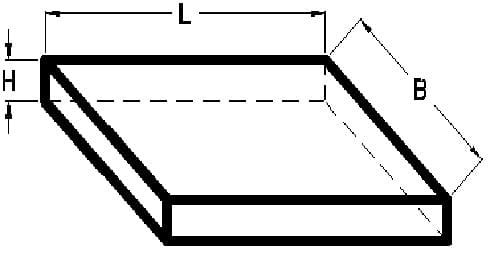Asphalt Calculator
Calculate the amount of asphalt needed for your driveway or parking lot
Related:Area Calculator|Distance Calculator
Step 1: Enter Measurements
Tip: Use the Area Calculator to measure your space
Step 2: Select Thickness
See thickness guide below for recommendations
Step 3: Select Asphalt Type
Most common type, suitable for most applications
Default density based on selected mix type, adjust if needed

Enter measurements to see calculation results
What is asphalt calculation?
Asphalt calculation helps determine the amount of asphalt needed for paving projects. Accurate measurements ensure you order the right amount of material for your driveway, parking lot, or road construction project.
- Residential driveways and pathways
- Commercial parking lots
- Road construction and maintenance
- Industrial paving projects
Instructions
Measure your area using the Area Calculator, or calculate from length and width
Choose the appropriate asphalt thickness based on usage
Enter the measurements in the calculator
Review the calculated asphalt quantity
Add extra material for compaction and waste (typically 10-15%)
Recommended Thickness Guide
Choosing the right thickness of asphalt is crucial for the durability and performance of your paving project. This guide provides recommended thickness ranges for different applications based on their intended use and traffic load.
| Application | Thickness Range | Notes |
|---|---|---|
Residential Pathways | 2-3 in (50-75mm) | For pedestrian and light residential use |
Standard Driveways | 3-4 in (75-100mm) | Suitable for regular residential traffic |
Light Commercial | 4-6 in (100-150mm) | For light trucks and moderate traffic |
Heavy Commercial | 6-8 in (150-200mm) | For heavy vehicles and high traffic |
Industrial Areas | 8-12 in (200-300mm) | For heavy machinery and constant traffic |
Parking Lots | 4-6 in (100-150mm) | Standard parking areas with regular vehicle traffic |
Loading Zones | 6-8 in (150-200mm) | Areas with frequent heavy vehicle stopping and starting |
Types of Asphalt Mixes
Different types of asphalt mixes are available depending on the intended use and application. The differences are found in the selection of added aggregates, as well as the mixing temperature.
Hot Mix Asphalt (HMA)
The most common form of asphalt. Made by heating the asphalt binder to decrease viscosity. Typical density: 145 lb/yd²·in (2.4 kg/m²·mm)
Warm Mix Asphalt (WMA)
Similar to HMA but produced at lower temperature. Fewer emissions and reduced fuel consumption. Typical density: 142 lb/yd²·in (2.35 kg/m²·mm)
Porous Asphalt
Designed for water drainage, commonly used in parking lots. Lower density due to void content. Typical density: 130 lb/yd²·in (2.0 kg/m²·mm)
Reclaimed Asphalt Pavement (RAP)
Recycled from old pavements. Variable density depending on mix design. Typical density: 140 lb/yd²·in (2.3 kg/m²·mm)
Additional Considerations
Base Preparation
A proper base is essential for asphalt longevity. Consider:
- Soil conditions and drainage
- Base material compaction
- Climate and weather patterns
Climate Factors
Adjust thickness based on:
- Freeze-thaw cycles
- Rainfall intensity
- Temperature extremes